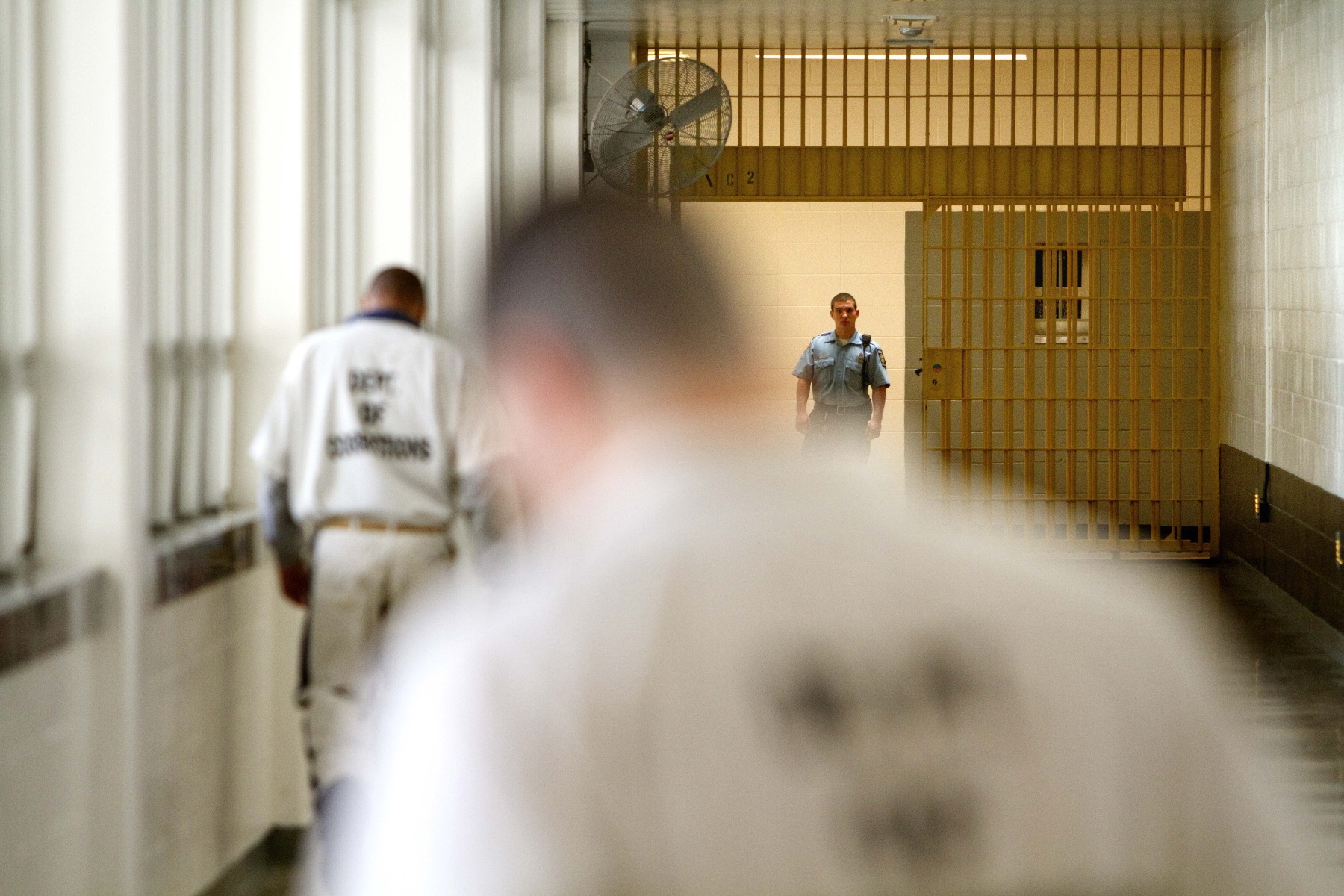People held in solitary confinement at the Georgia Diagnostic and Classification state prison in Jackson, called the Special Management Unit (SMU), will be allowed more time outside.
Limits will be placed on how long people can be confined, by themselves, in 7-by-13.5-foot cells that make up the Middle Georgia prison’s solitary unit, and those held in the unit will have access to computer tablets and a library.
All of these reforms are part of a federal settlement between the state and lawyers for two men, Robert Watkins and Timothy Gumm. The settlement pointed to a broader shift in the Georgia Department of Corrections’ (DOC) approach to solitary confinement.
“The settlement that we have come to represents a change in culture for the DOC and a realization of the profound harms caused by long-term isolated confinement,” said Sarah Geraghty, a lawyer with the Southern Center for Human Rights, which represented Watkins and Gumm, along with the law firm Kilpatrick, Townsend, and Stockton.
Joan Heath, chief communications officer at the Georgia DOC, appeared to indicate the department is trying to reduce the number of inmates held in “restrictive housing.”
“The Georgia Department of Corrections recognizes the national reforms surrounding restrictive housing and we are actively engaged in moving forward with internal procedures that address these trends,” Heath wrote in an emailed statement. “Through these internal processes, we have seen a reduction in restrictive housing by 40%.”
Approximately 100 people are currently held at the SMU. Watkins is in his 10th year of solitary confinement there, and Gumm was confined for 7 1/2 years.
In 2015, Gumm filed a handwritten legal complaint in federal court that described conditions in the SMU.
“In addition to the physical, mental and emotional anguish and psychological trauma generally associated with prolonged solitary confinement,” the complaint said, “Gumm has experienced lasting hardships and damaging effects.”
Geraghty said a federal judge, in an unusual move, requested the Southern Center represent Gumm.
Last year, as part of the case, the Southern Center hired Craig Haney, a psychology professor at the University of California, Santa Cruz, to assess conditions in the solitary confinement unit at the state prison in Jackson.
“It is one of the harshest and most draconian such facilities I have seen in operation anywhere in the country,” Haney wrote in his statement to court.
The professor said the people in solitary confinement he interviewed, “described the pain that they felt and mental and emotional suffering they endured as a result of the severe social and environmental deprivations to which they were subjected.”
Haney said the lack of even visual contact with the “natural world,” a general sense of uncertainty and helplessness, the length of confinement, and high number of mentally ill people held in the SMU led to an “unusually high level of trauma and risk.”
He also noted the Georgia DOC “ignored long-standing and robust scientific literature that has established the very serious and at times irreversible harm that that solitary confinement in general can incur.”
According to the settlement, people held at the SMU will be allowed at least four hours per day out of their cells, except on weekends and holidays.
And people sent to the unit cannot be kept there for more than two years, unless they are reviewed by a panel that includes “senior security, legal, and mental health professionals.”
The settlement also requires mental health evaluations for people held in solitary confinement on the unit, and changes to criteria that can lead to a person who is prison being sent there.
“It’s time for us to move out of the dark ages here,” said Geraghty. “A civilized society does not keep people locked in isolation cells for years on end.”









